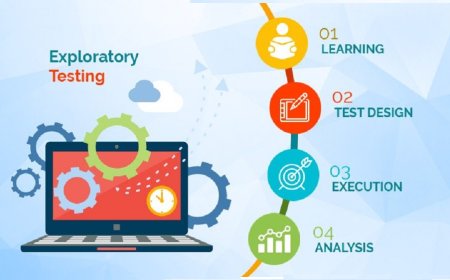Post-Checkup: When to Visit a Doctor

Afull body checkup plays a vital role in maintaining good health and preventing serious medical conditions. It provides a complete overview of your current health status by evaluating key bodily systemsheart, liver, kidney, blood sugar, cholesterol, and more. While the process of undergoing a full body checkup is essential, knowing what to do after receiving your test results is equally important. One common question that arises is: when should you visit a doctor post-checkup?
Understanding the results of your full body checkup can sometimes be overwhelming, especially when there are unfamiliar medical terms or out-of-range values. This article outlines the key scenarios when a doctor visit becomes necessary after a full body checkup, helping you take the next steps wisely.
1. Abnormal Test Results
One of the most obvious reasons to consult a doctor post-full body checkup is when any results fall outside the normal range. Even slightly elevated or decreased levels of parameters like blood pressure, glucose, cholesterol, liver enzymes, or thyroid hormones should not be ignored. A doctor can help interpret the severity of the abnormality and recommend lifestyle changes, further tests, or treatments if needed.
2. Presence of Symptoms
If you opted for a full body checkup despite having no symptoms, youre on the right track toward preventive health. However, if symptoms such as fatigue, headaches, breathlessness, unexplained weight loss, or chest pain persist even after the checkup, a follow-up visit to the doctor becomes crucial. Sometimes symptoms may point to conditions not detected during a routine full body checkup, requiring further medical evaluation.
3. Chronic Condition Indicators
A full body checkup can flag early signs of chronic diseases like diabetes, hypertension, heart disease, kidney dysfunction, or anemia. If your report hints at the beginning stages of any such condition, a doctor visit is necessary for early intervention. Timely treatment or medication can significantly slow disease progression and prevent complications.
4. Risk Factor Assessment
Your full body checkup might show high cholesterol levels, increased BMI, or elevated liver enzymes even if you're not experiencing any symptoms. These are often risk indicators for future health problems such as cardiovascular disease, fatty liver, or metabolic syndrome. Consulting a doctor allows you to understand these risks better and implement preventive strategies.
5. Family History Concerns
If your full body checkup reveals borderline results and you have a family history of certain diseasessuch as diabetes, cancer, or heart conditionsit is wise to discuss your report with a healthcare professional. A doctor can guide you on genetic risks, recommend additional screening, and offer personalized preventive care based on your background.
6. Clarification and Guidance
Not everyone is familiar with the medical terminology used in a full body checkup report. Instead of guessing or Googling your values, its better to visit a doctor who can provide clarity. The doctor can explain what each test means, whether your results are truly concerning, and how often you should get retested.
7. Follow-Up Tests
Sometimes, a full body checkup leads to the need for additional diagnostic tests. For example, if your liver function test shows elevated enzymes, your doctor might recommend an ultrasound or more specific liver tests. Only a qualified physician can determine what follow-up tests are required and when they should be performed.
8. Preventive Health Planning
Beyond addressing abnormalities, a full body checkup can serve as a baseline for your preventive health strategy. A doctor can help you establish goals for weight management, exercise, diet, sleep hygiene, and stress control based on your test results. This transforms your checkup from a mere diagnostic tool into a roadmap for long-term wellness.
9. Re-check Intervals and Monitoring
If your full body checkup indicates values that are not critical but are close to the thresholdlike borderline blood sugar or mildly raised triglyceridesa doctor can advise on the ideal interval for your next checkup. Regular monitoring helps in catching any deterioration early and taking corrective actions swiftly.
Conclusion
A full body checkup is a powerful tool for detecting health issues early and making informed decisions. However, the journey doesnt end with receiving the report. If any red flags arisebe it abnormal results, existing symptoms, or chronic risk indicatorsit is essential to consult a doctor promptly. Interpreting the results in context, identifying risks, and planning future care all require expert medical guidance.
Remember, the purpose of a full body checkup is not just to collect data but to use that information to enhance your health and quality of life. Whether your results are normal or need attention, taking that next step to consult a doctor ensures that your health is in the right hands. Don't treat your full body checkup as a one-time taskuse it as a cornerstone for ongoing wellness and proactive healthcare.





























